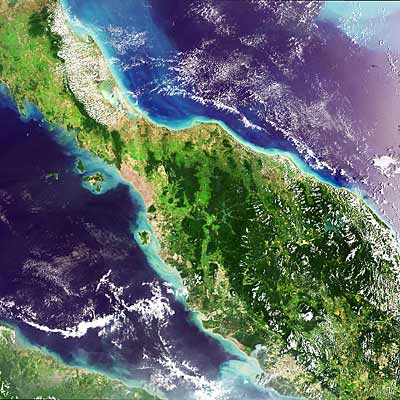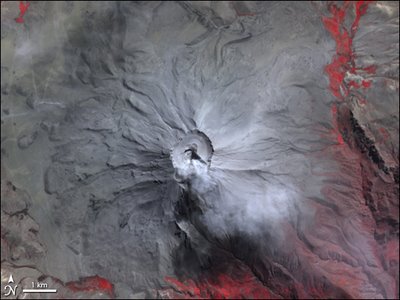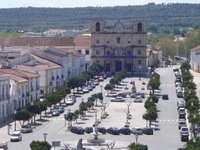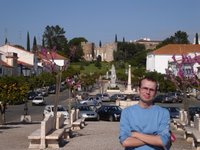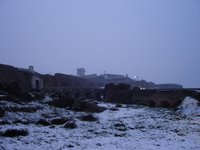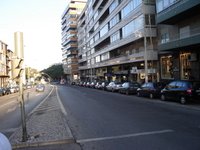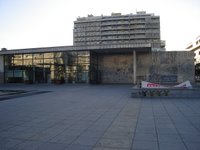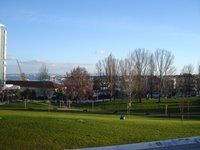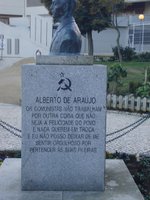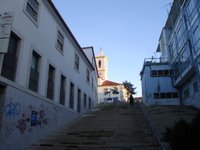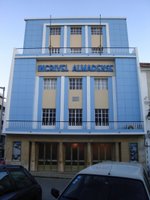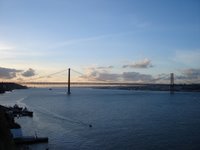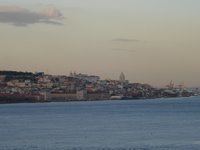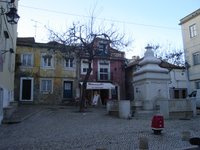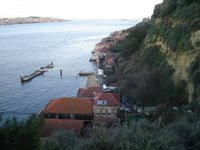Last month was a dark month in the world, the political situation got worst in 13 countries and only got better in 2 countries. there is a very high risk of conflict in nigeria, somalia and sri lanka.
but there is also a peace oportunity in Nepal.
Afghanistan:"Taliban "spring offensive" saw increased suicide attacks and bombings in south and east; more expected amidst transition from U.S. control to NATO in south. U.S., UK and national security forces launched its largest operation since 2001 in eastern Kunar province. Heavy fighting erupted in Kandahar as international and local forces clashed with anti-government elements: casualties included 6 police, several civilians and reportedly over 40 Taliban; 4 Canadian soldiers killed in roadside blast 22 April. Earlier 14 militants killed in attacks on checkpoints in Zabul province while 5 Afghan health workers killed in Badghis province. Suspected suicide bombers targeted Italian base in Herat - killing 4 - and U.S. bases at Bagram and in Helmand province. Voting on Cabinet confirmation took place 20 April in lower house of National Assembly. New foreign and defence ministers won vote of confidence in perceived government victory; transport and commerce ministers among 5 rejected".
Chad : The rebels atacked the capital and the goverment accused Sudan of backing up the rebels and cut diplomatic ties with this country and shut the borders. The president threath to shut pipelines if not given acess to funds to buy weapons and at same time France recognised the country goverment.
Egypt:3 explosions in Dahab resort in Sinai 24 April killed 18. No group claimed responsibility but same organisation that carried out 2004 Taba and 2005 Sharm El-Sheikh attacks suspected: 1 suspect killed during police operation 30 April. 2 suicide bombers killed in further attacks on Multinational Force and Observers post in northern Sinai 26 April. Earlier, sectarian
attacks on 3 churches in Alexandria killed 1 and sparked 3 days of protests by Coptic Christians and violent clashes 14-16 April. Hundreds arrested, but government criticised for initially downplaying attacks. 2 judges who had spoken out against
irregularities in 2005 parliamentary elections summoned to 27 April disciplinary tribunal; hearing adjourned to 11 May; police arrested and beat activists protesting summoning. Interior ministry announced over 900 Jamaa Islamiyya members released from prison. President Mubarek pushed through parliament 2-year extension on 1981 emergency law allowing indefinite detention of prisoners 30 April. Wafd party survival in balance after factions clashed over leadership in Cairo 1 April following attempt by ousted party president Noman Gomaa to seize party headquarters by force.
Guinea : a power sturgle inside the president cabinet.
Iran IAEA said Tehran had successfully produced enriched uranium but had defied UN Security Council’s 28 April deadline to stop process. U.S. said would seek new UNSC resolution requiring Iran to stop enrichment or face sanctions. Rhetoric on both sides heated up. with U.S. warning of consequences of continued Iranian defiance, and Tehran vowing to strike U.S. interests around the world if attacked. UNSC permanent members and Germany to meet 2 May to discuss next steps. Iranian forces reportedly shelled Kurdish rebel positions in northern Iraq.
Israel/Occupied TerritoriesViolence escalated between Israelis and Palestinians while tensions rose between Hamas and Fatah. Islamic Jihad suicide bombing in Tel Aviv 17 April killed 9. Hamas government called blast “self-defence” and “natural result” of continued Israeli depredations, leading to international condemnation. Meanwhile, Israeli strikes on Gaza reportedly killed at least 6 children and several militants, in reprisals over continued Qassam rocket attacks. EU and U.S. suspended funding for Hamas-led government but Gulf
countries and Iran pledged over $200 million, and Arab League said to be preparing to transfer 2-months’ wages direct to government employees. Tensions between Hamas and Fatah worsened after new Palestinian Interior Minister Said Siyam announced formation of shadow security force comprising members of militant groups to be led by militant faction leader Jamal Abu Samhadana. Mahmoud Abbas issued presidential decree nullifying proposal, leading to angry Hamas response and clashes between supporters of both sides. New Israeli coalition set to take power, composed of centrist Kadima, left-leaning Labour, ultra-Orthodox Shas and Pensioners’ parties.
Kashmir:Upsurge in attacks by separatists in first major violence since November 2005. 22 Hindu villagers killed by militants in Doda district 1 May. Wave of Srinagar grenade attacks 14 April and gunbattles in Srinagar and Jammu and Kashmir killed at least 17. Kashmiri radical separatist groups claimed responsibility. Senior opposition politician Ali Mohammad Naik wounded and 2 guards killed 17 April in attack claimed by Islamic Front militants. By-elections held for 4 seats for Jammu and Kashmir state assembly. 3 politicians reportedly killed by insurgents. Indian PM Manmohan Singh to meet Kashmiri separatist leaders in New Delhi early May.
Kyrgyzstan "President Bakiyev came under increasing pressure to deal with crime and corruption after prominent pro-democracy activist Edil Baisalov seriously injured in attack by unknown assailant. Baisalov had organised demonstration against criminalisation of politics ahead of 9 April parliamentary by-elections in which alleged organised crime bosses were candidates, including Ryspek Akmatbayev (who won despite questions over legality of his candidacy). Alliance of opposition politicians and NGOs issued 18 April ultimatum to president to tackle problems or resign. 29 April opposition rally ended peacefully after Bakiyev unexpectedly addressed crowd and appealed for patience. President threatened closure of U.S. Manas airbase if new agreement on rent payments not reached by June. "
Myanmar/Burma :Army intensified offensive against Karen communities near new capital Pyinmana and along Thai border: thousands reportedly displaced. U.S. condemned campaign, saying military regime threat to region. Ruling junta threatened National League for Democracy with dissolution, claiming links to terrorist actions. Series of small blasts targeting Yangon infrastructure 20 April came week after government called exiled pro-democracy groups terrorists. ASEAN ministers agreed to continue policy of engagement despite lack of progress on "roadmap to democracy", and failure of ASEAN envoy’s March visit.
Pakistan Pakistan Security situation continued to deteriorate as at least 57 killed in worst terrorist attack in Karachi’s history: suicide bombing of congregation of Sunnis celebrating Eid Milad festival killed entire leadership of Sunni Tehrik group, as well as many leaders of Jamaat Ulema Pakistan (JUP) - both Barelvi religious parties; JUP also partner in Muttahida Majlis-i-Amal 6-party religious alliance. Responsibility for blast unclear: observers suggested intra-Sunni rivalry, others, Deobandi extremist groups. Pro-Taliban militants attacked paramilitary troops near Miranshah, main town of North Waziristan region 20 April reportedly killing 7.
Solomon Islands PM Snyder Rini resigned after 8-day tenure marked by violent riots in capital, Honiara. Demonstrators claimed Rini, elected via secret ballot by newly elected members of parliament 18 April, too closely linked to previous tainted administration, and had used money from Taiwanese or Chinese sources - in context of continuing cross-Strait diplomatic battle over recognition of Taiwan - to bribe his win. Riots targeted Chinatown and left large areas in ruins. Government implemented curfew while Australian-led peacekeeping force - bolstered by additional 110 troops - patrolled city to prevent further violence. Curfew lifted 27 April, with new elections due first week May
.
Sri Lanka Fears of return to full-scale civil war after major upsurge in violence left over 100 dead, and with both government and Liberation Tigers of Tamil Eelam (LTTE) threatening immediate retaliation for further attacks. Government launched air strikes against Tamil positions after suicide bomber injured army chief and killed 10 in Colombo 25 April. Bombing followed 2 weeks of violent attacks against civilians and inter-communal rioting between Sinhalese and Tamils. Before suicide bombing, LTTE had "indefinitely postponed" scheduled second round Geneva talks with government, citing violence against Tamil civilians and restrictions on movement of LTTE leaders.
Timor-Leste Protest against government sacking of 600 soldiers turned violent 28 April, at least 2 killed; was latest in series of demonstrations by troops - many from west of country - claiming discrimination in military.
The sorce of this info is crisis international and was not writen by me.









